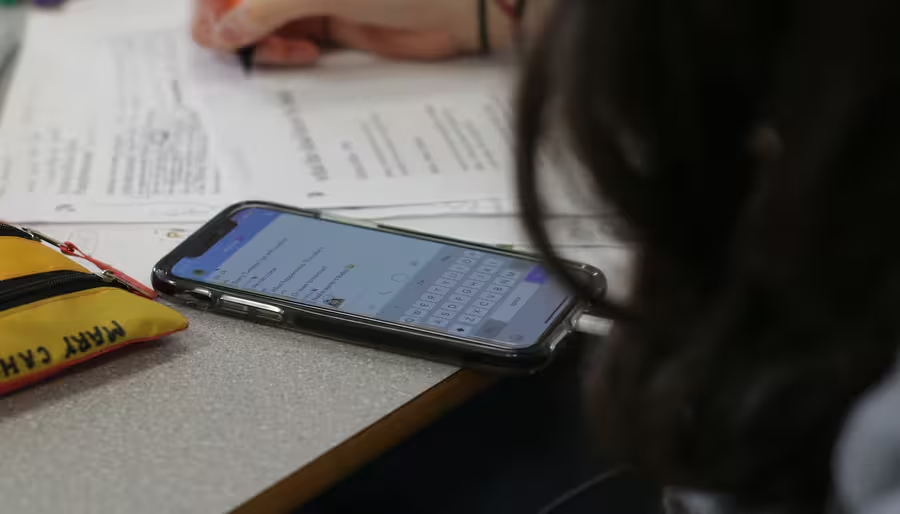
As Canadian students return to school, they will face new policies regarding their phone usage in the classroom. Throughout 2024, provinces across the country have implemented stricter laws regarding technology, however, the rules vary by region. In Saskatchewan and Nova Scotia, phones must be stored out of sight for all grade levels. In contrast, in Ontario, only students in grades 7-12 can have their devices during breaks but not during instructional times. Following the announcement of these new rules, students, parents and even teachers have shared their confusion about how these rules would be enforced in the upcoming school year. Many teachers have even expressed their concerns for their safety. Rachel Inch, an 8th-grade teacher at Broadview Public School told All in a Day that she’s been threatened with death because she took a phone away from a student, displaying how addictive phones truly are.
An addiction occurs when our brains release an abnormal amount of dopamine (a chemical that helps us feel pleasurable sensations). Software developers strategically incorporate unlimited scrolling and personalized content to keep users engaged, capitalizing on the neurotransmitters in our brains and causing unhealthy obsessions with social media and our devices. By incorporating laws on technology, politicians believe that this will prevent further obsessions and minimize distractions.
In 2023, UNESCO (United Nations Educational, Scientific, and Cultural Organization) encouraged schools worldwide to ban cell phones, with the exception of learning support purposes. Audrey Azoulay, the Director- General of UNESCO has said in a statement that “the digital revolution holds immeasurable potential,” and “just as warnings have been voiced for how it should be regulated in society, similar attention must be paid to the way it is used in education.” Nations worldwide have addressed this issue and incorporated similar phone bans in their institutions (Ex. Cyprus and the Netherlands). Psychologist Jay Olson explained in an interview with Yahoo News Canada that these laws can improve grades among students. “Bans may also lead to a decrease in bullying and an increase in physical activity,” says Olson. A study conducted in Australia found that test scores of 16-year-old students rose by 6.4 percent after schools restricted phones.
Despite the research, many students and parents are against the new rules. Some technology advocates believe that restrictions don’t teach kids how to use cell devices responsibly. “We’ve got to teach those skills. They’re essential. Nobody on the planet won’t tell me that healthy tech skills aren’t needed for future jobs and future life happiness. So then why on earth would we not be teaching those skills that we know are so important?” says Richard Cullata, CEO of the International Society of Technology in Education. Others argue that this would be a strain on the student-teacher relationship. Christopher Klein, a learning and achievement specialist from Montgomery County Public Schools spoke to NEAToday and expressed how “schoolwide bans are counterproductive,” and that we “need to be more careful not to degrade student-teacher relationships and make our schools feel more like a prison”.
Following the announcement, students across the nation have expressed their opinions on the topic. A Canadian teenager has also shared her confusion over whether they will be allowed to use their phones for music, as some kids use sounds to concentrate and increase productivity. Despite the debates circulating throughout the media, students will have to face a new culture shock in their classrooms in the upcoming school year.
Written by Suriya Rampersad


